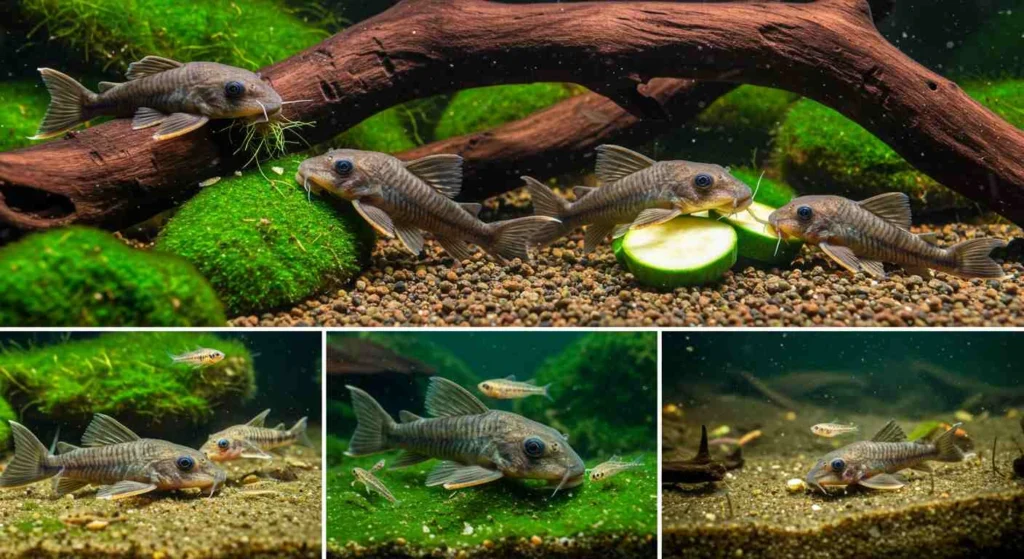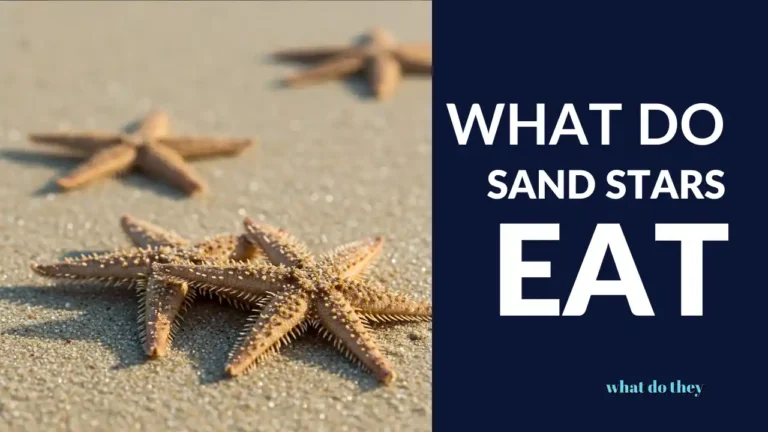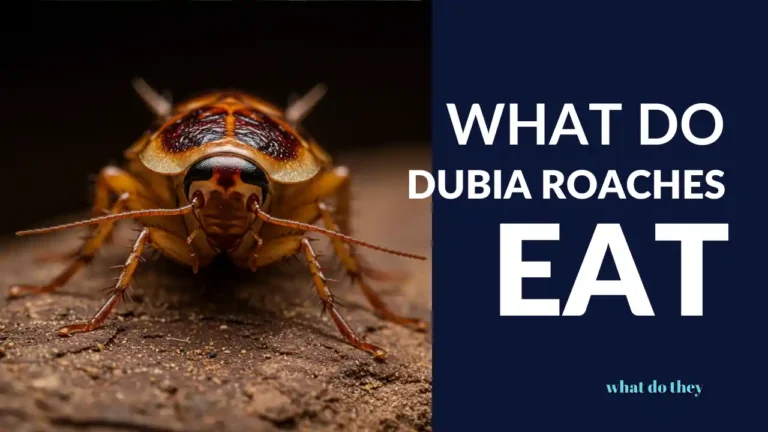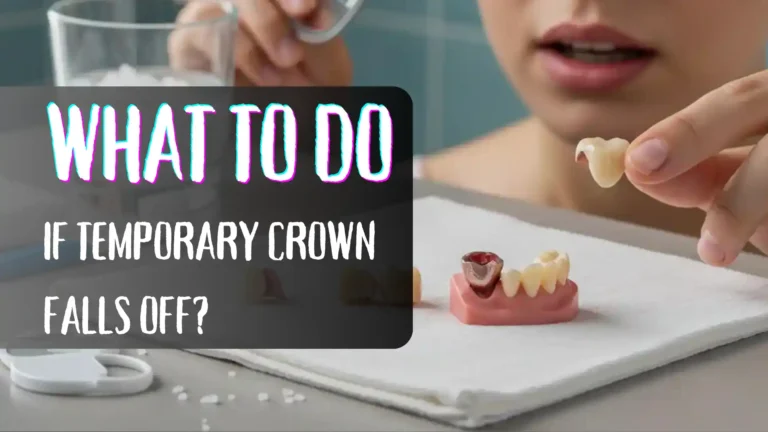What do sucker fish eat in home aquariums and in their natural habitats? These fascinating bottom-dwellers have earned their name from their distinctive mouth structure designed for a very specific feeding style. If you are interested in what different animals and insects eat, take a look at the following:
- What do Rabbits Eat from Gravel Road?
- What Do Squirrels Eat in the Winter?
- What do Yellow Bellied Sliders Eat?
What Do They has prepared this blog so you’ll learn the answer to what do Sucker Fish eat, how they feed, and the best foods to provide if you keep them in your aquarium.
What Are Sucker Fish?
Sucker fish is a common name that refers to several types of fish with specialized mouth structures shaped like suction cups. This category includes:
- Plecos (Plecostomus)
- Chinese algae eaters
- Otocinclus catfish
- True sucker fish (family Catostomidae)
- Loaches (some species)
These fish are popular in the aquarium hobby, especially plecos, due to their algae-eating habits and unique appearance.
Natural Diet of Sucker Fish

What do sucker fish eat in the wild? Their natural diet varies by species but generally includes:
Algae and Plant Matter
- Various types of algae (green, brown, and diatoms)
- Biofilm (microorganism layers on surfaces)
- Decaying plant material
- Soft young plants
- Fallen fruits and vegetables in the water
Small Invertebrates
- Insect larvae
- Tiny crustaceans
- Worms
- Zooplankton
- Small snails
Detritus
- Fish waste
- Decaying organic matter
- Food particles from other animals
- Bacterial films
Feeding Methods of Sucker Fish
The way sucker fish obtain their food is fascinating and directly related to their specialized mouth structure:
- Suction feeding – Using their mouth like a vacuum to pull food from surfaces
- Scraping – Using specialized teeth or mouth parts to scrape algae from surfaces
- Sifting – Drawing in substrate and filtering out edible particles
- Scavenging – Moving along the bottom to find leftover food items
Different Species, Different Diets

What do sucker fish eat when we look at specific popular species? The dietary preferences vary significantly:
Common Pleco (Hypostomus plecostomus)
- Primarily omnivorous
- Consumes large amounts of algae
- Requires driftwood for proper digestion
- Needs supplemental protein as they mature
- Will eat leftover fish food
Bristlenose Pleco (Ancistrus species)
- More herbivorous than common plecos
- Excellent algae eaters throughout their lives
- Rasp algae from surfaces with bristle-like projections
- Need supplemental vegetables
- Benefit from occasional protein
Otocinclus Catfish
- Almost exclusively algae eaters
- Prefer soft green algae and diatoms
- Very gentle on live plants
- Cannot survive on just fish food
- Need constant access to algae
Chinese Algae Eater
- Despite the name, becomes less interested in algae as it ages
- Young fish eat mostly algae
- Adults become increasingly omnivorous
- May become aggressive and territorial
- Can develop a taste for the slime coat of other fish
True Sucker Fish (Catostomidae family)
- Bottom feeders in North American waters
- Feed primarily on insects, larvae, and small invertebrates
- Use their specialized mouths to vacuum food from river and lake bottoms
- Some species consume significant amounts of plant material
- Often feed in areas with current bringing food items
What to Feed Captive Sucker Fish

If you keep sucker fish in an aquarium, what do sucker fish eat when provided optimal care? Your feeding strategy should include:
Core Diet Components
- Algae wafers
- Sinking pellets (herbivore formula for most species)
- Vegetable matter (zucchini, cucumber, blanched spinach)
- Occasional protein sources (bloodworms, brine shrimp)
- Natural algae growth in the tank
Feeding Schedule
- Most species need food daily
- Larger plecos can be fed 2-3 times weekly
- Always remove uneaten vegetables after 24 hours
Creating a Sucker Fish-Friendly Environment
Beyond direct feeding, the environment plays a crucial role in what do sucker fish eat:
- Provide driftwood (essential for many pleco species)
- Allow controlled algae growth on some surfaces
- Use broad-leaved plants they can graze on
- Include rocks and surfaces where biofilm can develop
- Create areas with gentle water flow where food particles collect
Common Feeding Problems
Not Enough Algae
Many new aquarium owners face this issue: what do sucker fish eat when there’s not enough natural algae? Solutions include:
- Supplementing with algae wafers
- Providing blanched vegetables
- Adding rocks from established tanks with algae growth
- Ensuring adequate lighting for controlled algae growth
Competition for Food
- Feed after lights out for nocturnal species
- Provide multiple feeding stations
- Ensure food reaches the bottom
- Consider target feeding with turkey basters or feeding tubes
Refusal to Eat
If you’re wondering what do sucker fish eat when they refuse offered food:
- Try different vegetables
- Offer foods at night
- Check water parameters
- Try commercial foods from different brands
Nutritional Requirements
Depending on the species, sucker fish need different nutritional balances:
| Species | Protein Needs | Plant Matter | Special Requirements |
|---|---|---|---|
| Common Pleco | Moderate to high | Moderate | Driftwood essential |
| Bristlenose Pleco | Low to moderate | High | Driftwood essential |
| Otocinclus | Very low | Very high | Constant algae access |
| Chinese Algae Eater | Increases with age | High when young | More protein as adults |
| True Sucker Fish | Moderate to high | Low to moderate | Varied diet essential |
Signs of Good Nutrition

A well-fed sucker fish will show:
- Healthy coloration
- Active behavior
- Growth appropriate to species
- Regular waste production
- No signs of aggression toward tank mates (in most species)
So the Answer to What do Sucker Fish Eat is…
As we’ve explored what do sucker fish eat, these specialized fish consume a diet that ranges from algae and plant matter to small invertebrates and detritus, depending on their specific species. Understanding the dietary needs of the particular sucker fish you keep is essential for their health and longevity.
Whether you have a common pleco, a bristlenose, or one of the many other sucker fish varieties, providing the right balance of foods will ensure your fish thrives. Remember that most species benefit from a combination of natural algae growth, supplemental vegetables, and some form of protein. By meeting these dietary needs and creating an environment that supports their natural feeding behaviors, you’ll enjoy watching these fascinating bottom-dwellers perform their important cleaning role in your aquarium ecosystem.








Leave a Comment